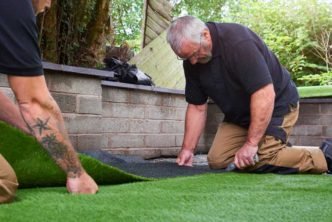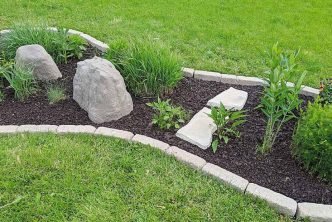Gardening is an enjoyable and rewarding activity that can provide a great deal of satisfaction. But to ensure success, it’s important to understand the role of soil in gardening. Soil provides essential nutrients for plants and helps them grow healthy and strong.
Without the right type of soil, your garden will suffer from nutrient deficiencies or be overrun with weeds. So, if you’re looking for a quality substrate for your plants, look no further than garden soil Perth. You may also boost the quality of your soil by following the simple tips below.
Table of Contents
How to Improve Soil Quality in Your Garden
1. Test Your Soil
Testing your soil for pH balance and nutrient content is an important step in optimizing the health and productivity of your garden. To do this, you’ll need to invest in either a soil test kit or send a sample of your soil to a laboratory. Testing will help you understand your soil’s current levels and give you the information you need to make the right amendments and adjustments.
2. Add Compost
Adding compost is one of the best ways to improve your garden’s soil quality. Compost contains a range of essential nutrients, microorganisms, and moisture-holding humus that helps promote healthy plant growth. It’s also an excellent soil amendment that helps break up compacted soils and improves drainage.
3. Mulch Around the Plants
Mulching around plants is an important part of improving soil quality in gardens. Mulch acts as a protective layer over the soil that helps retain moisture, reduce erosion and runoff, and prevent weed growth. It also breaks up dense soils, allowing the roots to penetrate deeper into the soil for better nutrient absorption. Additionally, mulch can help regulate soil temperature and increase nutrient availability.
4. Amend Your Soil with Manure
Adding manure to your garden’s soil is an easy way to improve its health and productivity. Manure helps break up compacted soils, improves water retention, and increases the availability of essential nutrients like nitrogen and phosphorus for plant uptake.
Aside from compost and manure, peat moss and leaf mould can also be used to improve the texture of your garden’s soil. Peat moss is a great soil amendment that helps to hold onto moisture and has an ideal pH balance for plants. Its high porosity helps break up heavy clay soils and increase drainage. Leaf mould is an excellent source of organic matter, providing essential nutrients and increasing soil aeration.
5. Avoid Walking on Wet or Recently Tilled Soil
Compacting soil can reduce its aeration and water absorption, which can lead to poor plant growth. To prevent this, avoid walking on wet or freshly tilled soil until it has had a chance to dry out and settle.
6. Use Cover Crops
These are plants that are grown in between crop rotations to improve the soil’s health and structure. Cover crops help fix nitrogen in the soil, reduce erosion and runoff, add organic matter to the soil, break up compacted soils, prevent weed growth, and attract beneficial insects.
7. Plant a Variety of Crops
Growing a variety of crops helps improve soil diversity by introducing different root depths and nutrient needs. Different plants will help to break up compacted soils and increase the availability of nutrients, ultimately resulting in healthier soil.
8. Mix in Rock Dust or Gypsum
Adding rock dust or gypsum to your garden’s soil helps break up dense, clay-like soils and improve drainage. Rock dust is a natural material made from crushed rocks broken down over millions of years. This powdery substance contains essential minerals like magnesium, calcium, and phosphorus that help to condition the soil. Gypsum is a material that helps to reduce the soil’s pH levels and provides calcium for plant uptake.
9. Plant Deep-Rooting Plants
Growing plants with deep roots can help to break up compacted soils and improve aeration. These plants will grow their roots deep into the soil, allowing them to reach more moisture and absorb essential nutrients for better plant growth. Examples of deep-rooting plants include corn, carrots, and onions.
10. Check Your Soil Regularly
Finally, regular soil testing is essential for understanding the health of your garden’s soil and making adjustments accordingly. Checking nutrient levels, pH balance, and texture will help you determine the best amendments for your soil. Proper care can improve and sustain your garden’s soil for healthier plant growth.
How often should you condition your soil?
Garden soil should be conditioned at least once a year to keep it healthy and productive. Conditioning your plants’ substrate helps ensure that they get the nutrients they need while allowing for better water retention and drainage.
The process of conditioning garden soil involves adding organic matter such as compost materials or manure, which increases nutrient levels in the soil and improves its structure. Additionally, regular aeration of the soil is key to maintaining good health allowing oxygen to reach plant roots more easily.
Good soil management is the key to successful gardens and productive growing seasons. By doing this regularly, you’ll ensure that your garden will remain fertile and healthy for years to come.
Contact Mazzega’s Landscaping Supplies for quality soil conditioners, amendments and test kits!





